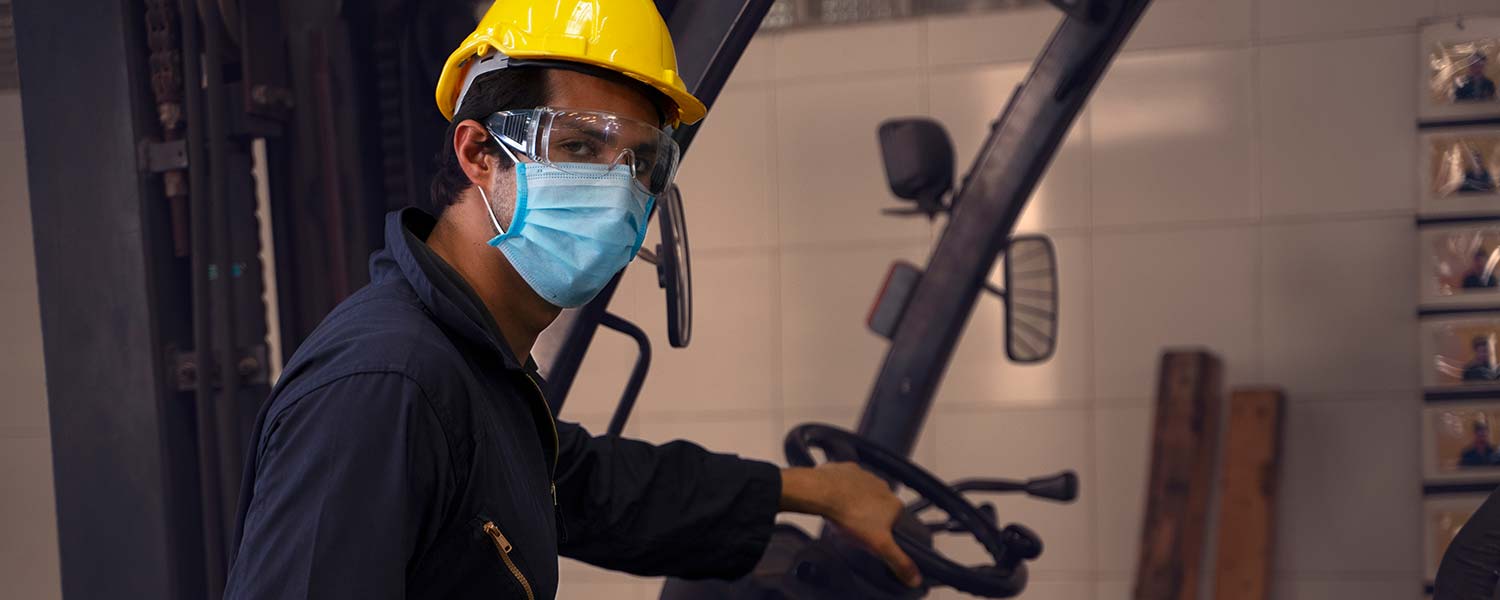Can I file a workers' compensation claim if I'm exposed to Covid-19 at work?
The Covid-19 pandemic creates an entirely new situation if exposed at your workplace.
All Articles
Posted: 07/16/2020
Workers Compensation Workplace Injury

Montana does not yet have any laws, regulations, or Court decisions specifically covering the Covid-19 virus and workers' compensation. Nevertheless, the existing rules allow you to file a workers' compensation and occupational disease claim if you believe you have contracted Covid-19 in the course and scope of employment.
The complication will be whether there is proof that you contracted the virus at work as opposed to through some other exposure. Ordinarily, workers' compensation claims are almost never filed when people get the flu or a cold even if they think they caught it at work — because the employee has the burden of proving the cause of the illness and it is usually impossible to rule out some other source of exposure to a virus. Of course, usually a flu or a cold is not serious enough to lead to long-term consequences or extensive medical treatment or disability.
The Covid-19 pandemic creates an entirely new situation. The differences involve the potential seriousness of Covid-19 illnesses, the ease of infection through very limited exposure, social isolation practices that may rule out other likely exposures, and the increase of contact tracing so that the source of an exposure might be fairly clear. For instance, if you are a healthcare professional or other essential services worker interacting with the public, and you have practiced quarantine or strict social isolation when you are not working, you should have a very good claim that it is "more probable than not" that you contracted Covid-19 in the course and scope of employment. Even if you just work in a private office, but learn that a coworker or customer had the virus at a time you were with them, you may have a valid claim if you test positive for Covid-19 and kept strict isolation when you were not at work.
Workers' Compensation Glossary of Terms
Did you know that Montana has two types of worker's compensation claims?
The first type of Montana workers' compensation claim uses the language of "injury" and "accident" and is focused on "a specific event on a single day or during a single work shift." For injuries that involve "pulmonary" or "respiratory" diseases, the employee must prove the work occurrence was "the primary cause of the physical condition in relation to other factors contributing to the physical condition." "Primary cause" means "a cause that, with a reasonable degree of medical certainty, is responsible for more than 50% of the condition."
The second type of claim is known as "occupational disease" and "is considered to arise out of or be contracted in the course and scope of employment if the events occurring on more than a single day or work shift are the major contributing cause of the occupational disease in relation to other factors contributing to the occupational disease." "Major contributing cause" is defined as "the leading cause contributing to the result when compared to all other contributing causes."
It is very important to remember there are different deadlines for filing a claim for injuries versus occupational diseases. For harm occurring on a single day or work shift, notice must be given to the employer or the employer's insurer within 30 days of the occurrence. In the case of contracting Covid-19, the insurer might argue the 30-day period begins when you knew or should have known you were exposed, though an argument could be made that the 30 days begins to run when you know or should know you have the virus. Actual knowledge of the "accident and injury" on the part of the employer can take the place of notice from the employee, but proof issues may come up and you should never assume "my employer knows." With respect to notice or actual knowledge on the part of the employer, you should give notice of the details of the exposure you believe happened, with as much specific detail as possible. It may not be enough that the employer knows you have the virus — the work connection is essential.
For exposures over more than one day or work shift, a claim must be filed within a year of when the employee knew or should have known of the disease — but with Covid-19, you might expect an argument from the insurer that the disease arose due to a single particular exposure, requiring the 30-day notice.
Many other states have already begun to pass particular laws and regulations applying to Covid-19 and workers' compensation, often to extend a presumption of coverage to health care workers. Some professionals in the workers' compensation system anticipate federal laws limiting workers' compensation coverage in the case of Covid-19.
If you believe you may have a claim for Covid-19 exposure in the course and scope of employment, we are here to listen to your situation and provide advice and assistance if you need us. Fill out a contact form or call one of our Montana office locations in Billings and Helena to explore potential compensation.
Sign Up for More!
Join our community and subscribe! Sign Up for Exclusive Legal Articles and Resources.